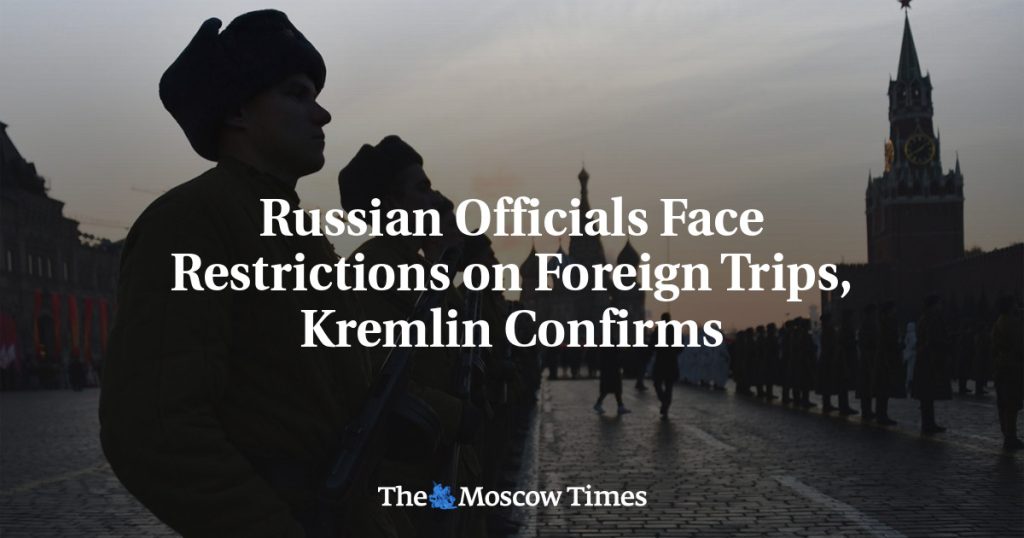The Kremlin has acknowledged that Russian officials face various restrictions on their ability to travel abroad, which have been put in place to prevent foreign powers from gaining access to state secrets. Kremlin spokesman Dmitry Peskov stated that all state organizations have different systems for approving travel abroad, with some departments not allowing any departures at all. The main reasons for the tougher rules include fears that officials could be tricked into giving up state secrets or detained and extradited to the West. The informal travel ban for officials was reportedly introduced in 2022, with formal adoption occurring in mid-2023, following the deterioration of Russia’s ties with the West after the invasion of Ukraine.
The Reuters report noted that the travel ban has now been extended to include holders of state secrets across Russia’s ministries, with restrictions being tightened after the detention of Dmitry Ovsyannikov in the United Kingdom for sanctions violations and money laundering. Despite initially denying the existence of foreign travel bans for officials in February 2023, Peskov later confirmed that stricter rules had been formalized for those working in sensitive areas following the invasion of Ukraine. Senior officials were required to obtain double approval for foreign travel, with approval needed from both immediate superiors and top-level bosses, such as Kremlin Chief of Staff Anton Vaino or President Vladimir Putin.
The restrictions on foreign travel for Russian officials have been put in place to prevent them from being entrapped or potentially leaking state secrets to foreign powers. The chaotic system of travel rules detailed in the Reuters report has led to a complex approval process for officials seeking to travel abroad, even to countries deemed friendly by Moscow. The fear of officials being detained and extradited to the West has driven the Kremlin to implement tougher rules for those working in sensitive areas, with stricter regulations being put in place since the invasion of Ukraine in 2022.
The informal travel ban for Russian officials, which was later formalized in mid-2023, reflects the heightened tensions between Moscow and the West following the invasion of Ukraine. The restrictions on travel have been extended to include holders of state secrets across various ministries, requiring senior officials to obtain double approval for foreign trips. The case of Dmitry Ovsyannikov’s detention in the United Kingdom for sanctions violations and money laundering has further heightened concerns about officials potentially leaking state secrets or being targeted by foreign powers.
Despite initial denials of foreign travel bans for officials, the Kremlin has confirmed the existence of stricter rules for those working in sensitive areas. The approval process for foreign travel for senior officials now involves obtaining double approval from immediate superiors and top-level bosses, such as the Kremlin Chief of Staff or President Putin. These measures have been put in place to safeguard against the risk of officials being entrapped or detained while abroad, underlining the challenges facing Russian officials seeking to travel outside the country amid heightened geopolitical tensions.















